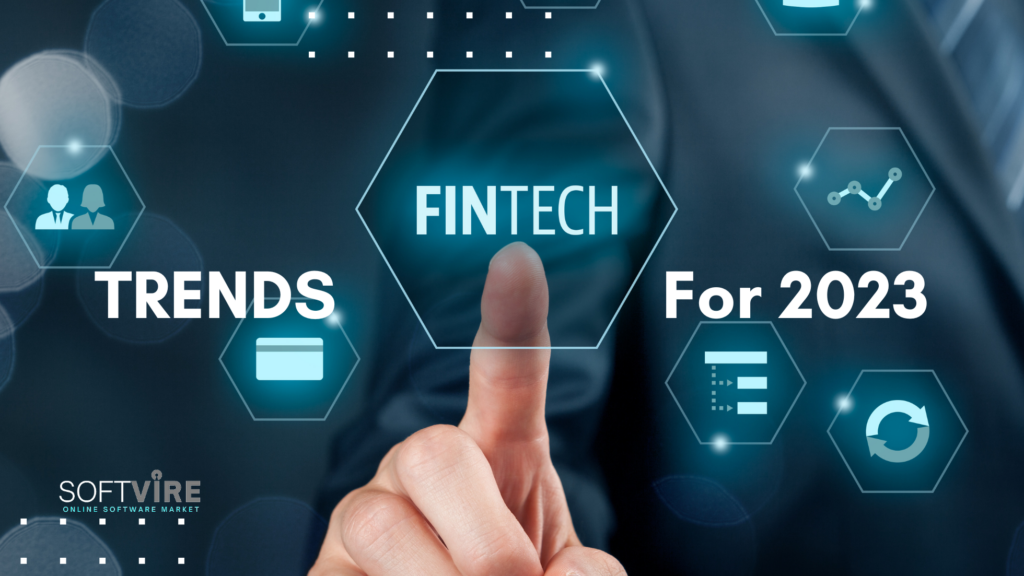FinTech (financial technology) is an umbrella term for software, mobile applications, and other technologies designed to improve and automate traditional forms of finance for both businesses and consumers. FinTech can range from simple mobile payment apps to complex blockchain networks housing encrypted transactions.
FinTech has significantly disrupted the financial sector over the last two decades, and its influence is growing as mainstream financial institutions apply its innovations and lessons learned. At the same time, the sector continues to develop and introduce new financial products and services to the market.
Here are three fintech trends to watch in 2023:
Embedded Finance
The potential growth of embedded finance is enormous, with analysts predicting a $138 billion market by 2026, up from $43 billion in 2021.
The integration of a financial product with a non-financial customer experience or platform is referred to as embedded finance. It is, to some extent, an evolution of car dealerships offering car loans, department stores offering own-branded credit cards, and appliance retailers offering hire-purchase agreements.
Nowadays, embedded finance entails integrating financial products with digital interfaces that customers interact with regularly. Digital wallets, loyalty apps, money transfers, shopping cart platforms, and accounting software are examples of such integrations. Having access to such financial services becomes a natural extension of activities like online shopping, inventory management, and ordering services from a local supplier. Any activity that involves the transfer of money is a potential opportunity for embedded finance.
Blockchain Technology and FinTech
One of the major issues in 2023 will be the future of blockchain technologies. Does it still hold the promise of dominating the future of FinTech?
Blockchain technologies are the foundation for decentralized finance (DeFi), which is based on decentralized smart contracts. Blockchain is a distributed ledger in which all transactions are recorded and verified immutably. The data cannot be changed or overwritten, which is critical to the security of the blockchain.
DeFi’s primary benefit is that it eliminates fees charged by banks and financial institutions for their services while enabling peer-to-peer (P2P) financial transactions. Without the involvement of a third party, P2P transactions involve two parties exchanging goods and services for cryptocurrency. For example, if one party needs a loan, an algorithm can find a lender willing to make the loan subject to a specified interest rate and terms, and if agreed upon, the loan is made.
Combining Banking and Fintech
Traditional financial institutions are gradually incorporating technology into their services to provide the same speed, efficiency, and user experience as new FinTechs. Among the ways this has influenced banking are open banking, lending, cloud-based banking, data access, blockchain, and cryptocurrencies.
Open banking – Most of us now have banking apps on our smartphones that allow us to manage multiple bank accounts, including current accounts, savings accounts, and investments.
Lending – Many banks make it simple to apply for loans and receive almost instant algorithm-based decisions, with instant cash in our current accounts if approved.
Cloud-based banking – Banks are gradually migrating many of their services to the cloud, which improves efficiency and results in a better customer experience.
Data access – banks now have real-time access to vast amounts of data about their customers, their shopping and spending habits, and any changes in their usual financial behavior. Such data can assist banks in detecting potential fraud and issuing real-time alerts when necessary.
Blockchain and cryptocurrencies – banks are experimenting with new blockchain technologies. Banks were vocal critics of cryptocurrencies in their early days, but banks are now changing their stance and embracing crypto.
Collaboration between banks and FinTech will ultimately reduce costs and speed up transactions. Such ventures will have a significant impact on international payments, where the traditional central banking route is both expensive and slow. Because cryptocurrencies have no borders, international payments are almost instantaneous, and processing fees are minimal.
Conclusion
So, what is the next big thing in finance technology? Will it rely on artificial intelligence (AI) in the future? Will early adopters of AI-powered investment apps rule the financial markets? Skeptics may still believe this is science fiction, but these developments are likely to occur sooner rather than later.
Contact Softvire AU right now for the best digital marketing tools. We are Australia’s leading IT online software store, offering significant discounts on bulk orders for small businesses.






